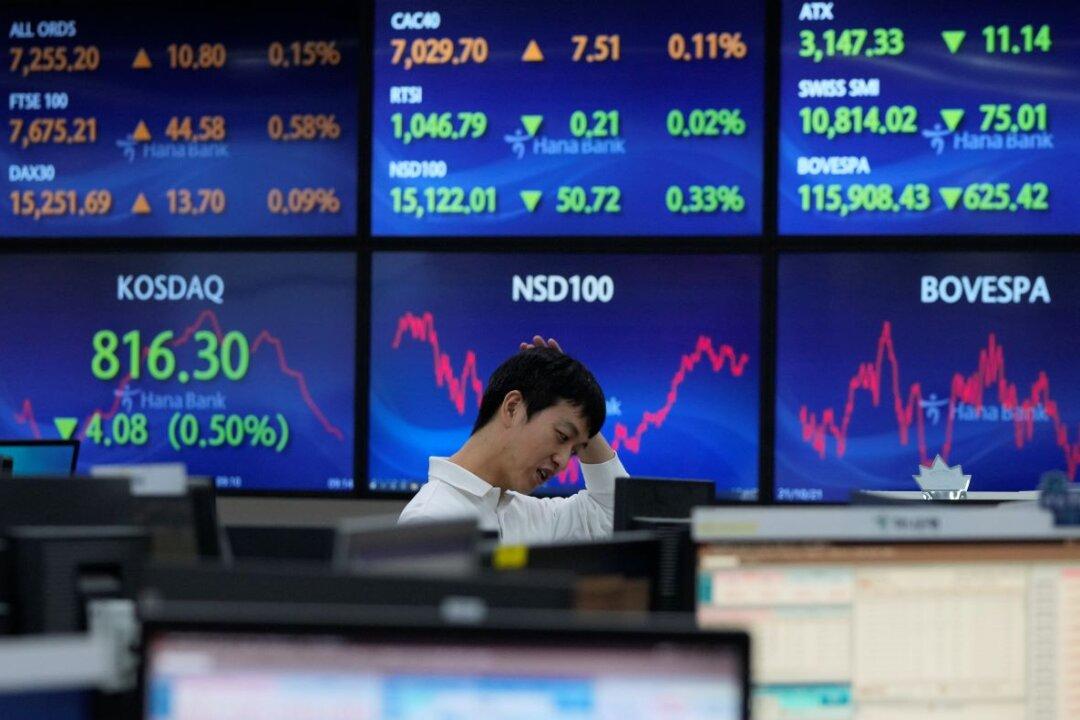HONG KONG—World shares retreated as the prospect of a 5 percent yield on the 10-year U.S. Treasury for the first time since 2007 added to pressure on Wall Street, though the yield held steady below that level early Friday.
Germany’s DAX fell 1 percent to 14,868.33 and the CAC 40 in Paris lost 1.3 percent to $6,833.21. Britain’s FTSE 100 was down 0.6 percent at 7,458.28. The futures for the S&P 500 and for the Dow Jones Industrial Average were virtually unchanged.





